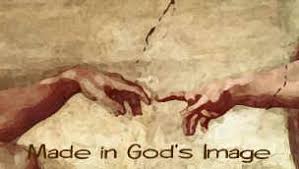GREEK HAS A WORD FOR IT. That’s an expression that recognizes that there are subtle distinctions available in Greek that English lacks. For instance, Greek has two words for “blessed.” But in English we are forced to give the single word two senses. “Blessed” can mean “fortunate,” “by a lucky coincidence,” “serendipitous,” as when we say “I have been blessed with good health” or “I was blessed with excellent parents.” But “blessed” can also mean praiseworthy, as when we say with Saint Paul, “Blessed be the God and Father of our Lord Jesus Christ,” or even when an old woman you have helped across the street turns and says, “Bless you, my child.” Something good has been done and is recognized as such. Both of these uses of “blessed” are found in the Bible, except that Greek has two words corresponding to our different uses of “blessed”: fortunate and praiseworthy. It happens that the Greek word for the second of these—praiseworthy—has come into English as “eulogy,” which we all recognize from hearing eulogies at funerals in which the virtues of the departed are praised and his shortcomings overlooked. The Greek word for “fortunate” or “lucky”—macarios—has no English equivalent . . . unfortunately.
We find both words on the lips of Elizabeth when she greeted Mary at the Visitation: “Elizabeth exclaimed with a loud cry, ‘Blessed (praiseworthy, “eulogy”) are you among women, and blessed (“eulogy”) is the fruit of your womb! . . . And blessed (fortunate, “macaria” [the feminine form of macarios]) is she who believed that there would be a fulfilment of what was spoken to her from the Lord.’” Which of the words would you expect to find in Mary’s Magnificat: “For behold, henceforth all generations will call me blessed”? Our Lady’s humility us evident here, for she describes herself as “fortunate” (macaria). There are two striking passages in Saint Matthew’s Gospel that illustrate the distinction between eulogy and macarios. First, chapter 5:
Blessed are the poor in spirt . . .
Blessed are they that mourn. . .
Blessed are the meek. . .
Jesus said that they were fortunate (macarios). “Eulogy,” praiseworthy, occurs in chapter 25: “‘Come, O blessed of my Father, inherit the kingdom prepared for you from the foundation of the world; for I was hungry and you gave me food . . ..” Was Peter fortunate or praiseworthy when he said, “You are the Christ, the Son of the living God”? Jesus answered him, “Blessed (macarios) are you, Simon Bar-Jona! For flesh and blood has not revealed this to you, but my Father who is in heaven.”
Significantly, the two parables in today’s Gospel —the treasure hidden in the field and the merchant in search of fine pearls—correspond to these two different connotations of “blessed”:
The treasure found in the field: macarios, for the man was simply lucky.
The pearl of great price: eulogy for the merchant was exercising his skill in recognizing it.
What we have here symbolically presented is the doctrine of grace, i.e., the action of God in our lives, for, if we respond as we should, we are both fortunate and praiseworthy. We are fortunate to have been baptized and to continue to receive the graces that empower us to follow the Gospel perfectly. Without grace we can do nothing, and thus we recognize that my good actions are completely dependent on the grace of God. But if that is the case, are we not reduced to automata, puppets who are moved by strings under heavenly control? The implications of this attitude seem unacceptable, for it leads to a denial of free will, of merit, of reward and to the doctrine of absolute predestination. On the other hand, if my virtuous actions are praiseworthy as performed by my own choice, with grace at best providing an initial impulse or mere assistance, how is God all powerful, all knowing, universally provident and immutable? The error in these views is to make them exclusive of one another, reducing God to a cause of my actions in the same way as I am. Paradoxically, we are thus brought to say that both are true at one and the same time: God does everything, but so do I.
Saint Thomas Aquinas indicated a resolution of this paradox by noting that there are different levels, or kinds of causality, primary and secondary. God is the primary cause, but I am also, under his divine providence, a secondary, which is to say, a real cause. A homely example may show how this can be. After a meal, I can truly say that I am digesting my food, but I may also say that God is digesting it in that he holds in existence me, my stomach and those powerful digestive juices that transform the raw material of my dinner into flesh and blood. God’s causality is at a completely different level of mine, just as his existence is so transcendent that it is misleading to use the word “exist” of him in that we also say that a rock, a plant, or an insect exists. And thus, I am that lucky man who found the treasure, because God has been good to me. But I am, at the same time, the skillful merchant whose years of experience allowed him to recognize the pearl of great price, because, under God’s grace I am enabled to acquire virtue by which I act in accordance with his will.












